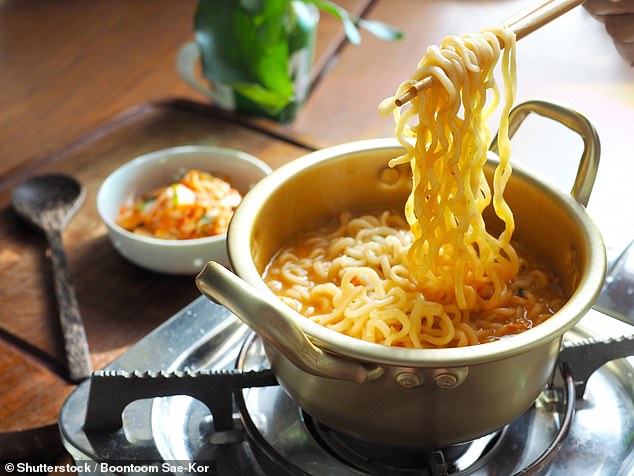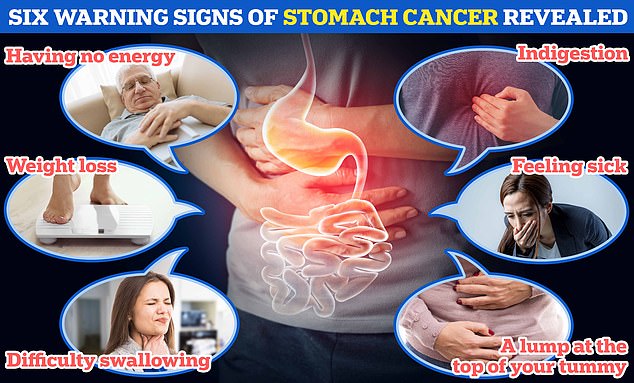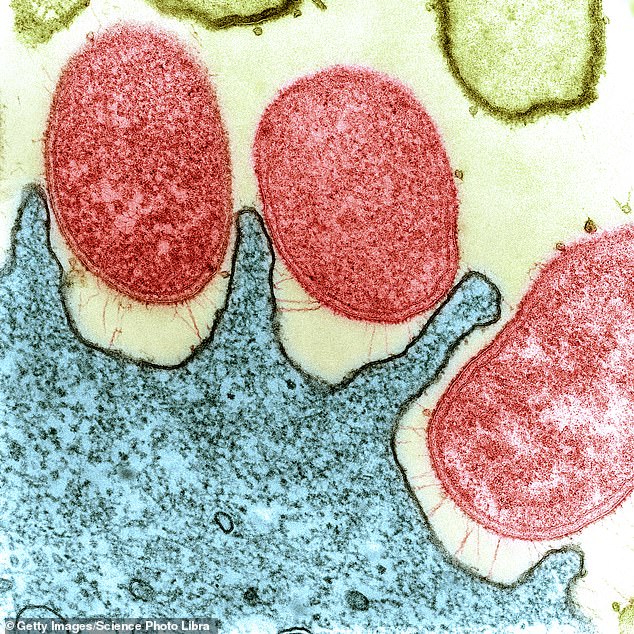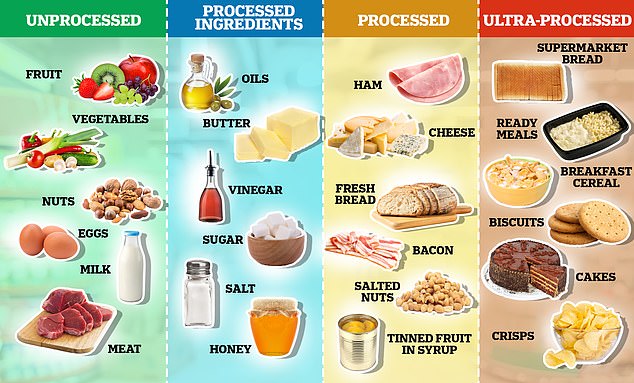Doctor Sounds Alarm: Popular Quick Dinner Linked to 55% Higher Cancer Risk
- EXPLORE FURTHER: Unexplained surge in hypertension among those under 50 uncovered
It's a budget-friendly student favorite that serves as a quick lunch or delicious snack.
However, frequently eating instant noodles might be harming your health, significantly increasing the risk of fatal stomach cancer, as stated by renowned oncologist Dr Tim Tiutan.
For many years, processed foods high in salt have been criticized due to concerns about potential health hazards, with numerous research papers associating them with an increased risk of developing type 2 diabetes. diabetes as well as other conditions such as heart attacks and strokes.
However, instant noodles, similar to numerous other salty processed foods, might increase the likelihood of developing cancer by making the stomach more susceptible to cancer-causing bacteria such as Helicobacter pylori (H. pylori). This was explained by an internist from the Memorial Sloan Kettering Cancer Center in New York.
In an Instagram reel viewed over 88,000 times, Dr Tiutan informed his audience: "A high-salt diet may lead to an increase in cancer Risk by disturbing your stomach lining and promoting H. pylori infections—an key factor behind stomach cancer.
'Excessive salt is associated with increasing stomach cancer risk by 55 per cent and may even double the risk when H. pylori is present.
'Thus, cut down your daily salt consumption to about one teaspoon and limit the intake of high-sodium foods such as those mentioned.'
'Bacon, ham, hot dogs, sausages, deli meats, preserved foods, canned soups, instant noodles.'


He added: 'This isn’t about fear-mongering. Small diet changes can lower cancer risk. Sodium is essential to life, but too much can be harmful.
'A high amount of salt consumption can result in hypertension as well as various other long-term health issues.'
'Occasionally, healthcare providers may advise patients to consume additional salt for specific medical purposes, and this guidance should be adhered to.'
For many years, doctors have cautioned that eating excessive amounts of salt can eventually result in health issues such as heart attacks and strokes.
The NHS suggests that adults should consume a maximum of 6g—or approximately one teaspoon—of salt per day.
However, studies indicate that adults ingest as much as tenfold the quantity of sodium—the same component found in salt—that their bodies require for metabolism daily.
H. pylori, also known as Helicobacter pylori, is a kind of bacterium that approximately 40 percent of individuals have in their stomachs.
In between 80 and 90 per cent of cases it doesn't cause symptoms, however it can trigger stomach ulcers, indigestion, bloating or nausea.


H. pylori can be identified through tests involving a blood sample, a breath analysis, or a stool sample, and it can be addressed using antibiotics along with other medications.
It has been widely recognised that consuming too much salt can exacerbate an H. pylori infection—a leading factor associated with an increased risk of stomach cancer.
Various elements such as smoking can likewise elevate the risk factor. H. pylori leading to cancer, according to Cancer Research UK.
Research published last year Evaluating salt consumption and stomach cancer risk in over 470,000 adults from the UK revealed that individuals who frequently added salt during meals had an increased chance of up to 41 percent of developing the disease when contrasted with those who seldom or never used additional salt.
Another in the British Journal of Cancer Also found that individuals who regularly consume heavily salted foods might increase their chances of developing stomach cancer twofold.
It has emerged as scientists did so previously year sounded the alarm due to the 'alarming' increase in adolescents and young adults suffering from stomach cancer.
Even though infections are declining among older individuals, there has been a consistent yearly increase of about two percent in those under 50 getting diagnosed recently, which confounds specialists.
Alarming as it may be, in fifty percent of these instances, the cancer has already progressed to an advanced stage, essentially becoming a "death sentence" with merely a 4% chance of survival.

Approximately 6,500 individuals in Britain and 30,000 in the United States receive a diagnosis of stomach cancer annually.
Approximately 4,000 people in Britain and 11,000 individuals in America succumb to this illness each year.
If detected at an early stage, most stomach cancer patients (65 percent) can expect to live for another ten years following their diagnosis, as stated by the charity Cancer Research UK.
Nevertheless, for those at stage four, only one out of every five individuals makes it to the ten-year mark.
Typical signs of the disorder encompass heartburn, loss of hunger, a sensation of satiety, hemorrhaging, presence of blood in feces, development of clots, or nausea.
The United Kingdom tops the list in Europe when it comes to consuming ultra-processed foods loaded with salt, comprising approximately 57 percent of their total food intake.
UPFs is an all-encompassing label for foods that include additives like colorants, sweeteners, and preservatives to enhance their longevity.
They're considered a major factor contributing to obesity, which imposes costs on the healthcare system. NHS approximately NZ$12 billion per year managing health issues such as diabetes, heart disease, and certain types of cancer linked to weight.
Last year, disturbing data also suggested Children consuming large amounts of ultra-processed foods exhibit initial indications of impaired heart health and increased risks for diabetes from the age of three onwards.
Read more
Post a Comment for "Doctor Sounds Alarm: Popular Quick Dinner Linked to 55% Higher Cancer Risk"